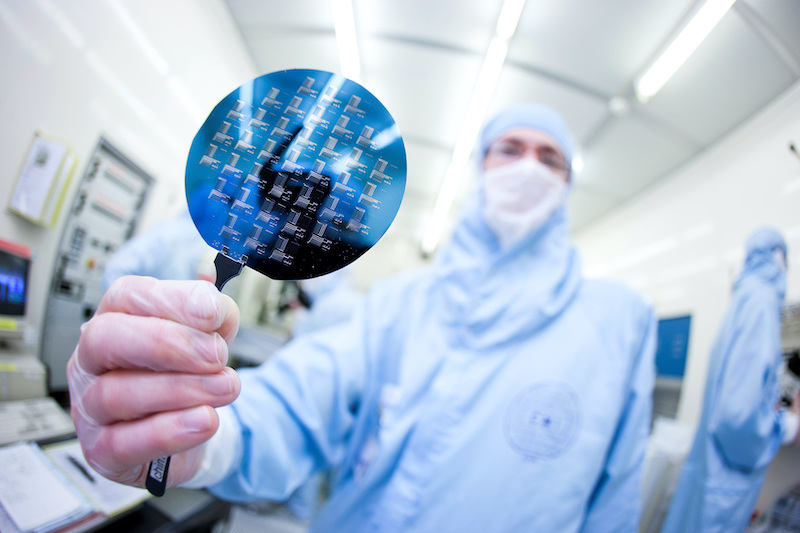Taiwan’s GlobalWafers expects to start construction of its new $5-billion silicon wafer plant in Texas in November, the company’s chairwoman and CEO said on Tuesday.
The company said in June it would build the plant to make 300-millimetre silicon wafers used in semiconductors, switching from an earlier plan to invest in Germany.
Chairwoman and chief executive Doris Hsu told reporters in Taipei that the groundbreaking ceremony was expected to be around the end of November.
The United States has been encouraging foreign tech firms to manufacture in the country, and the government has welcomed the investment by GlobalWafers.
US President Joe Biden signed the Chips and Science Act into law in August, which authorized about $52 billion in government subsidies for US semiconductor production and research, plus an investment tax credit for chip plants estimated to be worth $24 billion.
Hsu said that subsidies, while important, were not the only consideration.
“We received government subsidy proposals from not only the United States but from other places as well. But our assessment looks at the overall score. The Chips Act is a very important factor but it is not the only factor,” she said.
“I think the US market lacks silicon wafers. When we discuss carbon footprints, localization, and green solutions, I think there needs to be a local solution.”
GlobalWafer’s investment will be the first silicon wafer facility to be built in the United States in more than two decades, according to the US Commerce Department.
Taiwan Semiconductor Manufacturing Co (TSMC), a major Apple Inc supplier and the world’s largest contract chipmaker, last year started construction of a semiconductor factory in Arizona on which it plans to spend $12 billion.
GlobalWafers’ Taipei-listed shares closed 1% lower on Tuesday, underpeforming the broader market, which ended up 0.6%. The company’s shares are down 48% so far this year.
- Reuters with additional editing by Jim Pollard
ALSO SEE:
US Ban on Nvidia, AMD Chips Could Backfire, Analysts Say
US Chip Ban Likely to Hit Most of China’s Tech Giants
US Orders Nvidia to Stop Sale of Advanced Chips to China
























